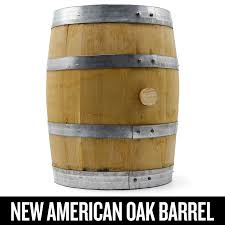Craft Revolution 2.0: The New Wave of Artisanal Distilling
The distilling industry is experiencing a renaissance, driven by a combination of technological advancements, changing consumer preferences, and a renewed focus on sustainability. This new wave of innovation is reshaping the landscape of spirits production and consumption.
One of the key trends is the rise of "terroir-driven" spirits. Distillers are increasingly emphasizing the importance of local ingredients and regional flavors, creating spirits that are true expressions of their geographical origins. This approach goes beyond simply using local grains or fruits; it extends to experimenting with indigenous botanicals, unique water sources, and even local yeasts to capture the essence of a particular region. This trend is particularly evident in the gin and whiskey sectors, where distillers are crafting products that reflect the unique characteristics of their locale, much like fine wines.
Another significant innovation is the application of cutting-edge technology in the aging process. Traditional barrel aging is being supplemented or even replaced by high-tech alternatives that aim to replicate or accelerate the maturation process. Some distilleries are using sound waves, pressure fluctuations, or even artificial intelligence to monitor and optimize the aging process. These methods not only potentially reduce production time but also allow for greater consistency and the ability to create entirely new flavor profiles that were previously unattainable through traditional means.
Sustainability has also become a crucial focus in the distilling industry, leading to innovative practices throughout the production process. Distillers are implementing closed-loop systems that minimize waste and maximize resource efficiency. This includes using spent grains for animal feed or energy production, capturing and reusing heat from the distillation process, and even creating biodegradable packaging. Some forward-thinking distilleries are experimenting with alternative energy sources like solar or wind power to run their operations, significantly reducing their carbon footprint.
The rise of "functional spirits" is another trend that's gaining traction. Similar to the brewing industry, distillers are exploring ways to incorporate health-beneficial ingredients into their products. This includes developing low or no-alcohol spirits that maintain the complex flavors of traditional spirits, as well as incorporating adaptogens, vitamins, or other functional ingredients. Some distillers are even experimenting with spirits designed to have specific effects, such as enhancing relaxation or boosting energy, blurring the lines between spirits and wellness products.


